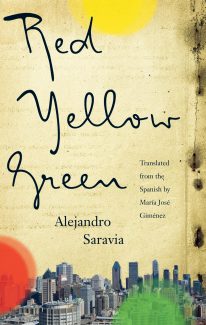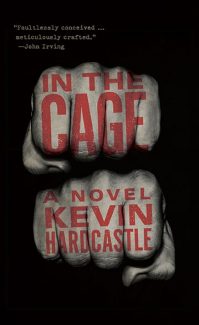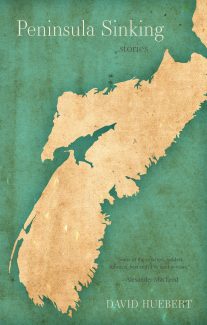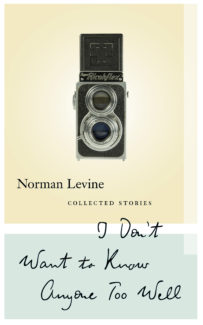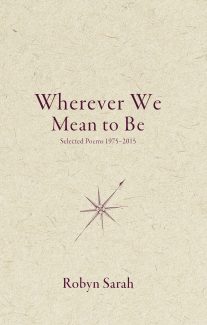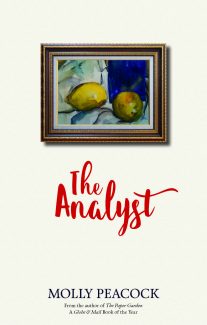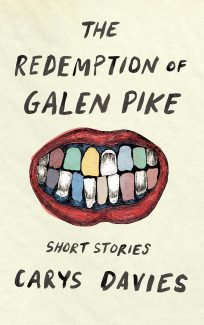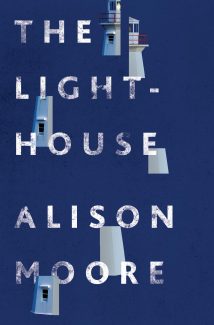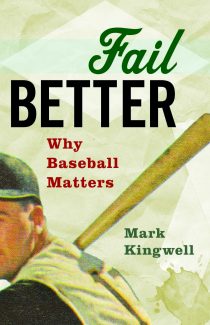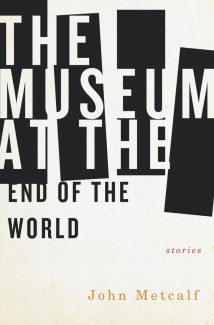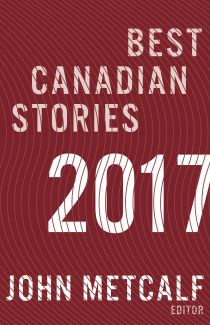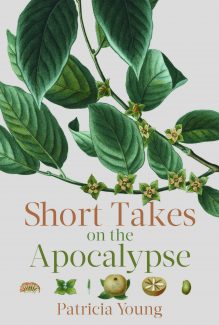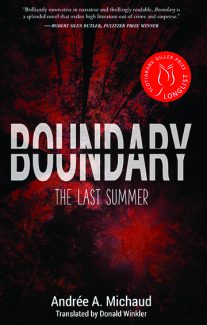The Bibliophile: Conviction Addiction
Mark Kingwell on compassionate skepticism and the project of justice
I’ve been reading Mark Kingwell since a beloved customer brought a laundry basket of books to my newly opened bookstore in 1998, on the top of which was a signed copy of In Pursuit of Happiness. I read everything by Mark thereafter, and when I started running a literary festival he was among the first authors I invited. When, a few years later, I thought about putting out a shingle as a publisher, I wrote to him about starting a pamphlet series; he was polite in declining, though when I approached him with a similar idea during the pandemic, he helped get the Field Note series started. Working with him, as I have now on seven books, including his just-launched (in Canada; the US pub date is February 11) Question Authority: A Polemic about Trust in Five Meditations, has been both one of the biggest honours and challenges of my professional and intellectual life, in part because his writing has challenged me to rethink (and then rethink again) my assumptions; even if I had not published Question Authority I would have argued that it is his most urgent and essential book in decades, perhaps since the publication of The World We Want. After the election result in the US, and knowing what this could mean for the forthcoming one in Canada, it has become more so.
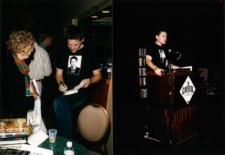
Left: Mark Kingwell signing books at Bookfest Windsor, 2002. Right: Mark reading at the Capitol Theatre.
In Question Authority Kingwell returns to the public square of civility and diagnoses the biggest challenge facing democratic ideals as what he calls doxaholism, or the addiction to conviction. This is a nonpartisan ailment, affecting both progressives and conservatives, and Kingwell shows how it makes progress on real issues impossible by making compromise equally so, while also undermining faith in essential institutions across the board. If this analysis was all that the book provided it would be worth reading, but he also posits an antidote, what he terms compassionate skepticism, the virtue or (old Humean that he is) ethical habit deploying “constructive disbelief governed by awareness of our shared vulnerability.” Rather than retreating into a range of particularisms, which have tended to further a doxaholic cycle, Kingwell tries to resuscitate Enlightenment universalism as defined by compassion and humility. He is sanguine about the risks we face, and the difficulties we will experience correcting course, but he is also hopeful that, by risking and being aware of our shared vulnerability, we can begin to let go of our misguided distrust in all things and begin the necessary work of building a more just, wise, and open-minded society.
There is so much more to say about Question Authority, things that may become future Bibliophile entries, but for now we’ll leave you with this brief excerpt about compassionate skepticism and how we can each participate in the project of justice.
Dan Wells,
Publisher
***
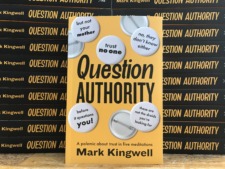
Photo: Question Authority: A Polemic about Trust in Five Meditations by Mark Kingwell. Cover designed by Michel Vrana.
An Excerpt from Question Authority
Introduction
The trust question raises a challenge we must issue to ourselves. That challenge is to approach the duties of civic life with a sense of commitment. In this endless blame game, we must ultimately point the finger at ourselves. That means, as I shall argue, a combination of respect for the collective enterprise and a healthy measure of critical assessment of those engaged in it. We have seen a great deal of the latter lately, and not enough of the former. Distrust of authority is not a viable theory of civic identity; it must be balanced with a sense of responsiveness to the needs of others.
I will label the resulting quality, a virtue or ethical habit, compassionate skepticism. I mean by that the deployment of constructive disbelief governed by awareness of shared vulnerability. It counts as a virtue because it is, to use Aristotelian language, a habituated trait of character that is also a disposition to act. To possess such a quality is to act upon its urgings, and vice versa. Cultivating the disposition, fashioning roles and habits that make for its flourishing, is the work of all of us. We live in a time when many of the strongest habits we have are bad—bad for us, bad for others, bad for the environment, bad for politics, bad for everything we care about. But humans are creatures of habit, and breaking harmful ones is hard work.
I will lean heavily on the idea of habit in what follows, in part because trust itself is a matter of good habits, often exhibited against all odds. The remarkable thing about human societies is that they function at all, given all the primitive tendencies working against them. Even at the level of basic cognition, we are far more likely to incline to superstition and misinformation than to execute the hard work of tracking true knowledge and forging a stable rational subject. As the philosopher Dan Williams notes, “lies, conspiracy theories, misinformation, bias, pseudo-science, superstition and so on are not alien perversions of the public sphere.” On the contrary, “[t]hey are the epistemic state of nature that society will revert to in the absence of fragile—and highly contingent—cultural and institutional achievements.”
That contingency is precisely what occupies me in these pages: the sheer unlikelihood and fragility of our social cooperation. Also, per the corollary point, I flag throughout these pages the urgency of avoiding any slide back into a state of nature that is at once epistemic and political. I mean that wasteland of alternative facts and competing rationalities, all fought on a razed battleground that might once have been a rational public sphere, called public life. Make no mistake about this paradox of human existence: there is every reason for people not to be rational. In terms of basic urges and instincts, we have to acknowledge that logical reasoning and truth-seeking do not come naturally to us. They are possibilities of our nature, but not, as it were, the resting state. And yet, our rational capacity has long been considered the best part of ourselves—especially when it is conjoined with the kind of “unselfing” that makes for connection with other people and with ideas beyond self-interest. Reason and emotion are not contraries but partners. Moreover, we sometimes find ourselves precisely in those moments when we seem most alien to ourselves. Only a reflective, textured account can make sense of that common feature of being a person.
Pursuing these lines of thought, gathering the threads, teasing out what we might call the ethico-cognitive potential of consciousness within all the daily dross and distraction, requires the telling of a good story. I mean a story about ourselves and the world, and about how the two fit together. Story is itself so basic to the human mind that we find ourselves unable to experience life without its shapes and tropes. Personal identity, with its attendant burdens of responsibility and choice, is unthinkable without the continuity of narrative. And just as repetition can aid us when we need guidance, so narrative can provide shape to our temporal thrownness. Habit and narrative are closely linked in the project of individual life, in short, as they are in politics understood as shared life. The conjunction both offers and demands good pattern recognition, but it also then demands the recognition of good patterns over bad.
I realize this is all quite abstract—an inevitable feature of doing philosophy even of the applied or practical variety. My hope is that the details of what follows will clarify everything contained in these introductory paragraphs. For now, the best way to answer all these complex (and never-ending) challenges will be to form new habits to replace old, harmful ones—or, more accurately in the present case, to revive and cultivate potential but endangered habits of trust and responsibility. These positive human habits have been comprehensively frayed, by technology’s disconnection-through-connection, by the polarization of public discourse, and by the reduction of everything to a kind of abstracted video game where other people are no longer seen as entirely real. Habits are powerful, but they are not inevitable. The first step is recognizing how they come to take hold of us. The second step is then to challenge them. The third is to execute this program of recovery with better habits—habits of flourishing, including trust in each other and in the institutions we all need to meet the complexities of twenty-first-century life.
Authority must be questioned so that it becomes better, not in order to tear down all possible guidelines for living. We need good rules, good games governed by the rules, and better players to play the games—real people, actual citizens, not avatars or handles. Politics is, after all, a very serious game of justification, wherein participants must offer arguments, if sometimes only implicit ones, for why they have something that someone else does not. Unlike many other games, but in common with the best of them, this game allows for winners and losers but also embraces the wisdom that sometimes true achievement lies in the defeat of any need for victory. Thus do we transcend competition to create community and even glory.
Such high-toned sentiments invite immediate skepticism, I realize. Most of us are well versed in skepticism already. It is the dominant habit of the age. Indeed, the restless urge to question everything might be considered the keynote of both modern and postmodern realities: questioning things is what got us here, but it is also what now makes for confusion. Compassion is another story. Its etymology suggests an idea of fellow feeling, or empathy; but there is also a suggestion, with use, of a relevant command—that compassion entails not just recognition of another’s suffering, but a positive duty to relieve it. In this manner, compassionate skepticism may take its place alongside other, more familiar political virtues like reasonableness and civility.
Compassion is that rare thing, a strong feeling with an equally strong rational basis. Its arousal is, in part, a recognition of shared vulnerability. But that recognition also calls forth an ethical and political response, itself a conjunction of feeling and reason. I experience pain at the pain of others; their suffering causes me to suffer. Absent sociopathic deficit, this is the natural order. Kant and other rationalist philosophers remind us that our fellow-travellers on the moral plane are other rational agents—or, at least, we and they wish to be so. One of the things we have learned to accept since Kant’s time is that the class of rational agents may not all be human.
Even more important than this extension of care and regard is a point that Kant tends to discount altogether. He focuses on our rational powers, and hence our responsibilities. But reason is also a burden, and sometimes a weakness in ourselves. Reason can mask the more fragile inwardness of consciousness, that part of ourselves that includes an awareness of both weakness and wonder in the world. Once we know it, we cannot unknow the fact of suffering.
The game is better when all of us have skin in it. Good games beget good players, and good players in turn bolster and maintain the game’s health. The crisis of trust begins at home. What kind of player are you?
***
In good publicity news:
- The Notebook by Roland Allen was reviewed in the New York Times: “A revealing document of a relationship so intimate as to be sacred: that of the writer and the page.”
- Near Distance by Hanna Stoltenberg (trans. Wendy H. Gabrielsen) received a starred review from Publishers Weekly: “Stoltenberg debuts with a stunning portrait of a strained mother-daughter relationship . . . It’s a winner.”
- A Way to Be Happy by Caroline Adderson was reviewed by NPR book critic Kassie Rose in The Longest Chapter: “An impressive collection.”
- May Our Joy Endure by Kev Lambert (trans. Donald Winkler) was reviewed in the Literary Review of Canada’s Bookworm: “Amanda Perry called the award-winning original, Que notre joie demeure, ‘stylistically adventurous.’ That also rings true for the seamless translation by Donald Winkler, who renders Lambert’s shifting aesthetic modes and formal experimentation with verve.”




